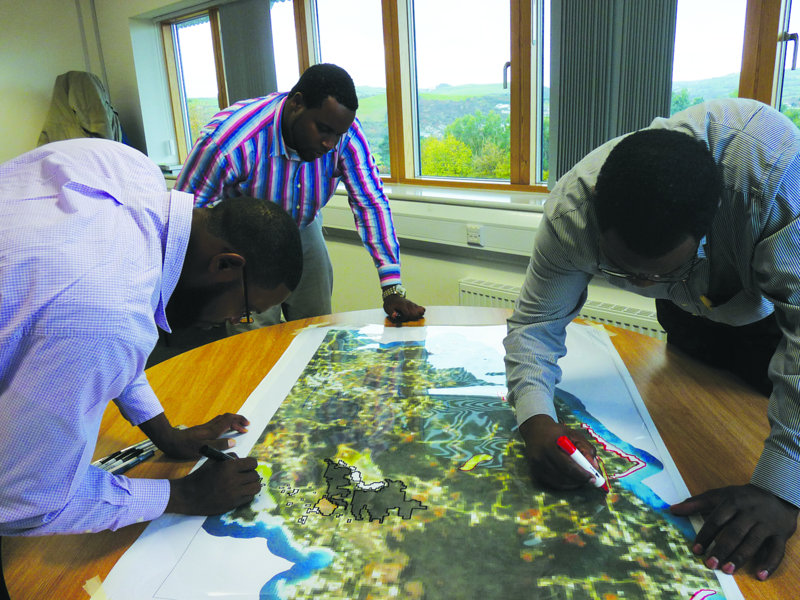
Five persons from Anguilla: Lindsay Richardson, Icilma Webster, Ornete Edwards-Gumbs, Akilah Thompson and Sabrina Darr-Boodram,attended a Training of Trainers workshop, which ran from 12th – 16th of November in Montserrat. The Community Emergency Response Team (CERT) training was specifically designed for community leaders who have demonstrated the ability to teach/train others. The training consisted of lectures, teaching practice, and day and night time team dynamic exercises. Twenty seven (27) persons were trained from five (5) participating States – Antigua & Barbuda, Anguilla, St. Kitts & Nevis, Montserrat and British Virgin Islands.
The workshop was held at the Montserrat National Disaster Center where participants were issued with a personal protective kit, equipment and tools to function as part of a CERT team. Participants were placed in teams to facilitate the development of critical skills such as leadership and working in teams to accomplish prescribed tasks. Each team had a supervisor to assist in the development of these skills. The workshop concluded with a brief closing ceremony where all participants received certificates of participation. Additionally, special certificates of excellence were awarded to the most outstanding participants and team. Akilah Thompson was a recipient of a certificate of excellence, while Lindsay Richardson’s team won most outstanding team.
The training highlighted the roles and functions of CERT in the disaster management framework. It also emphasized the need for multi-agency collaboration and co-operation and strengthened the technical skills of the participants. The training was designed to test the critical thinking skills as well as the mental and physical capacity of the participants; and to that end it achieved the objectives as outlined below.
The Community Emergency Response Team (CERT) Program is a voluntary program that:
• provides an opportunity for communities to become more self-reliant during disasters that may affect them;
• enables the development of multifunctional response teams whose members can give critical support as first responders and provide immediate basic assistance to victims;
• educates people about disaster preparedness for hazards that may impact their area;
• facilitates the training of community members in basic disaster response skills, such as fire safety, light search and rescue, team organization, and disaster medical operations.
CDEMA, the agency which facilitated the Training Workshop, is seeking to broaden community self-sufficiency in preparing and responding to local events through Community Emergency Response Team (CERT) training. The training is held particularly in the Participating States selected for the Enhanced Community Programme under the ACP-EU Disaster Risk Management Sub-regional Programme and the Enhancing Resilience to Reduce Vulnerability in the Caribbean (ERC) Project. To date, CDEMA has successfully piloted its CERT program in Montserrat since February 2009. This model was used in Providenciales, Turks and Caicos Islands in September 2011 and most recently in Grenada in July 2012 where 25 instructors were trained.
CERT is a voluntary program and requires a partnership between community members and local government, emergency management and response agencies. CERT instructors in Anguilla will discuss with government and emergency management officials ways to improve their community’s preparedness capability and how CERT can be involved. It is anticipated that community members will be trained as CERT to be part of the community’s response capability following major disasters. It is important that we develop a plan that covers training, maintenance and activation standards as well as administrative requirements like databases and funding. Organizations such as neighbourhood watch, communities of faith, school staff, workplace employees, and youth organizations can play a pivotal role in the development of CERT in Anguilla. As such then, CERT instructors in conjunction with The Anguilla Department of Disaster Management will be seeking the public‘s support in reducing identifiable hazards, as well as enhancing disaster preparedness skills in our communities.








